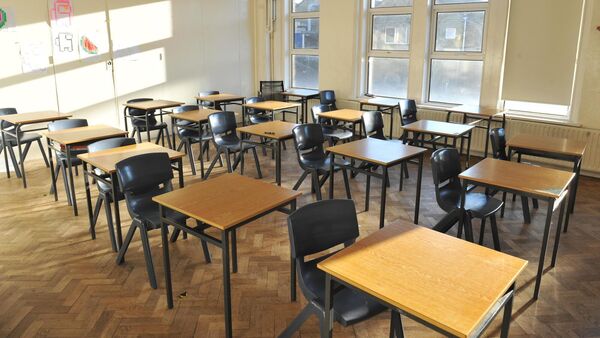A Muslim student at Michaela community school in Brent, north-west London, has lost a high court challenge to the school’s ban on prayer rituals. As a Muslim secondary schoolteacher, I have to say I am disappointed – but not surprised.
The appeal was lost on the grounds that the school declares itself secular. This is something the headteacher, Katharine Birbalsingh, insists all students and parents know when applying. In the written judgment dismissing the student’s case, Mr Justice Linden went as far as to say that: “The claimant at the very least impliedly accepted, when she enrolled at the school, that she would be subject to restrictions on her ability to manifest her religion.”
But this is about more than just the legal question of whether a school has the right to uphold its own rules: it’s worth interrogating why schools like Michaela view their role as being so aggressively secular in the first place.
Is it right for a school where 50% of the pupils are Muslim, in an area as diverse as Brent, to stubbornly cling to a vision of secularism that excludes a core component of half their pupils’ identities? And when teachers are legally required to promote the spiritual, moral, social and cultural development of our students (and are encouraged to teach British values, which hold freedom of belief and expression as apparent fundamentals), then where does prohibiting a five-minute act of private spiritual devotion fit in?
The irony is that schools in the UK are not routinely secular. In fact, they are obliged to provide a daily opportunity for communal worship that should be broadly Christian in nature (for schools without a formal faith designation) – although some opt out. Up and down the country, children happily partake in religious-based activities, whether that’s hymns and nativity plays or assemblies on Diwali and Hanukkah. An obstinate, Fraench-style secularism creeping into our classrooms seems entirely at odds with the experience of many teachers like myself in our diverse nation.
I’ve taught in schools where I was the only Muslim and in schools that are almost 100% Muslim, and prayer has never been an issue. While Birbalsingh describes an atmosphere of fear and intimidation in which students became divided along the lines of faith, I’ve only ever seen the opposite: intricate questions about theology coming from the panini-stuffed mouths of 12-year-olds; kids pausing a football game while their mate quickly prays; young people learning how to get along with people different from themselves. The alternative is growing up in a system where that difference is banned, hidden away.
The high court judgment acknowledges that the Michaela school’s prayer ban “indirectly discriminates” against Muslims as the only group regularly performing prayer rituals. But part of the reason the student in question lost her challenge is because she is free to move to a school where such expression is permitted. Of course, this is true in theory. But it is disingenuous to pretend that parents have complete freedom over where they send their children to school. Pupils at Michaela achieve significantly more highly than their peers in other schools – in the words of the judgment, its results “are exceptionally good”. In an area of extreme social deprivation such as Brent – and given that Muslims come from some of the poorest communities in the UK – should one cohort of families have to grapple with the choice between social mobility and religious freedom? And when Muslims are so often accused of failing to integrate or contribute to Britain, what message are we sending future generations if the right to express your faith can come at the cost of a quality education?
Like many other Muslims, I have become all too familiar with the moral panic and othering that follows our every move in Britain today. It is difficult to view this high court judgment in isolation from the backdrop of normalised Islamophobia we have seen emerging in recent times. Even the language used by the school to defend the ban, such as the idea that pupils were being “intimidated” into praying or wearing the hijab by their peers, is indicative of how Muslim children are viewed through a lens of criminalisation thanks to the legacy of the controversial Prevent counterterrorism programme.
Increasingly, we are seeing innocuous expressions of Muslim identity being viewed as extreme or anti-British, and the upholding of Michaela’s ban reinforces the idea that – as Birbalsingh herself puts it – we need to sacrifice certain things in the name of Britishness. For Muslims, that comes at a higher price than it does for others.
-
Nadeine Asbali is a secondary school teacher in London and the author of Veiled Threat: On Being Visibly Muslim in Britain
-
Do you have an opinion on the issues raised in this article? If you would like to submit a response of up to 300 words by email to be considered for publication in our letters section, please click here.



